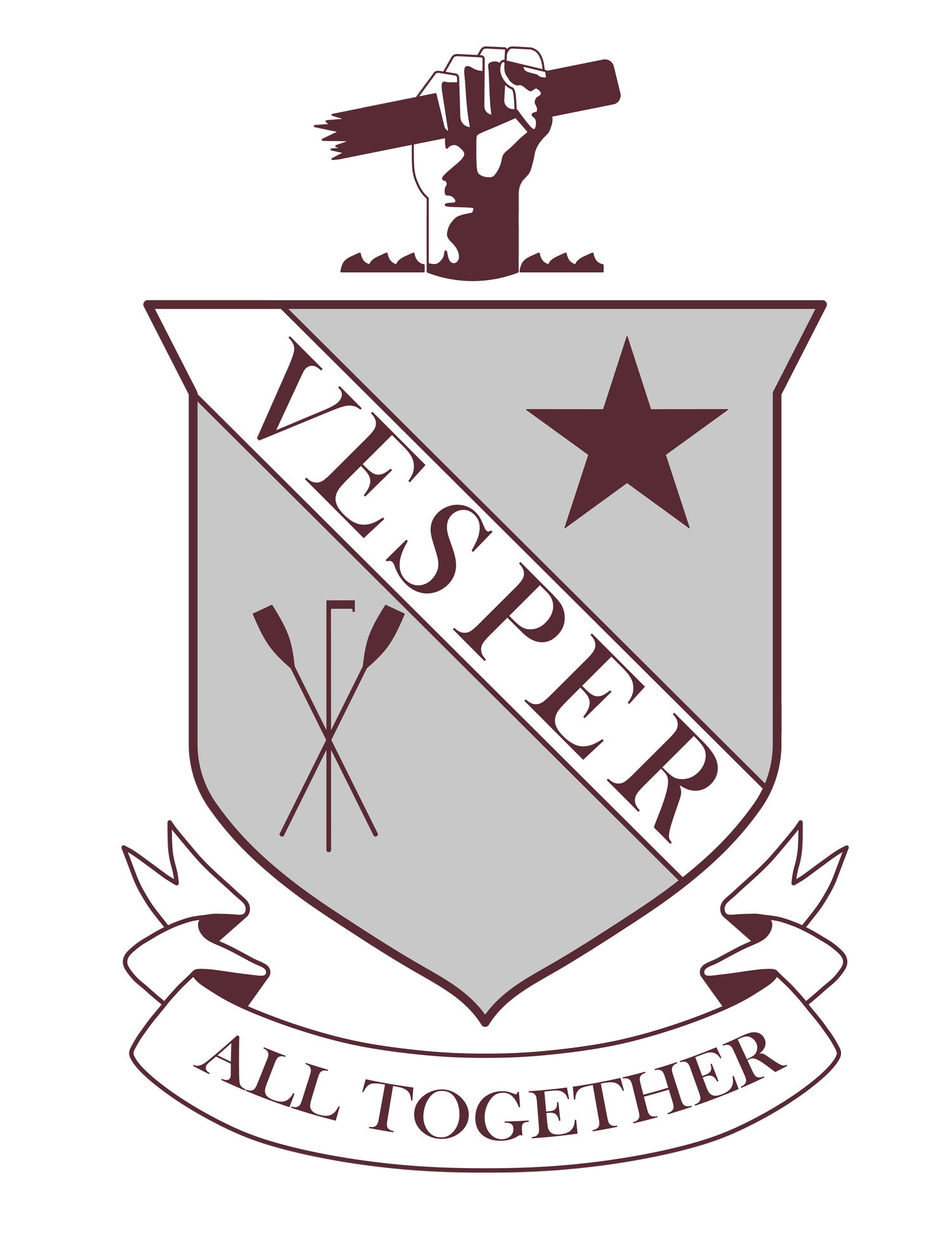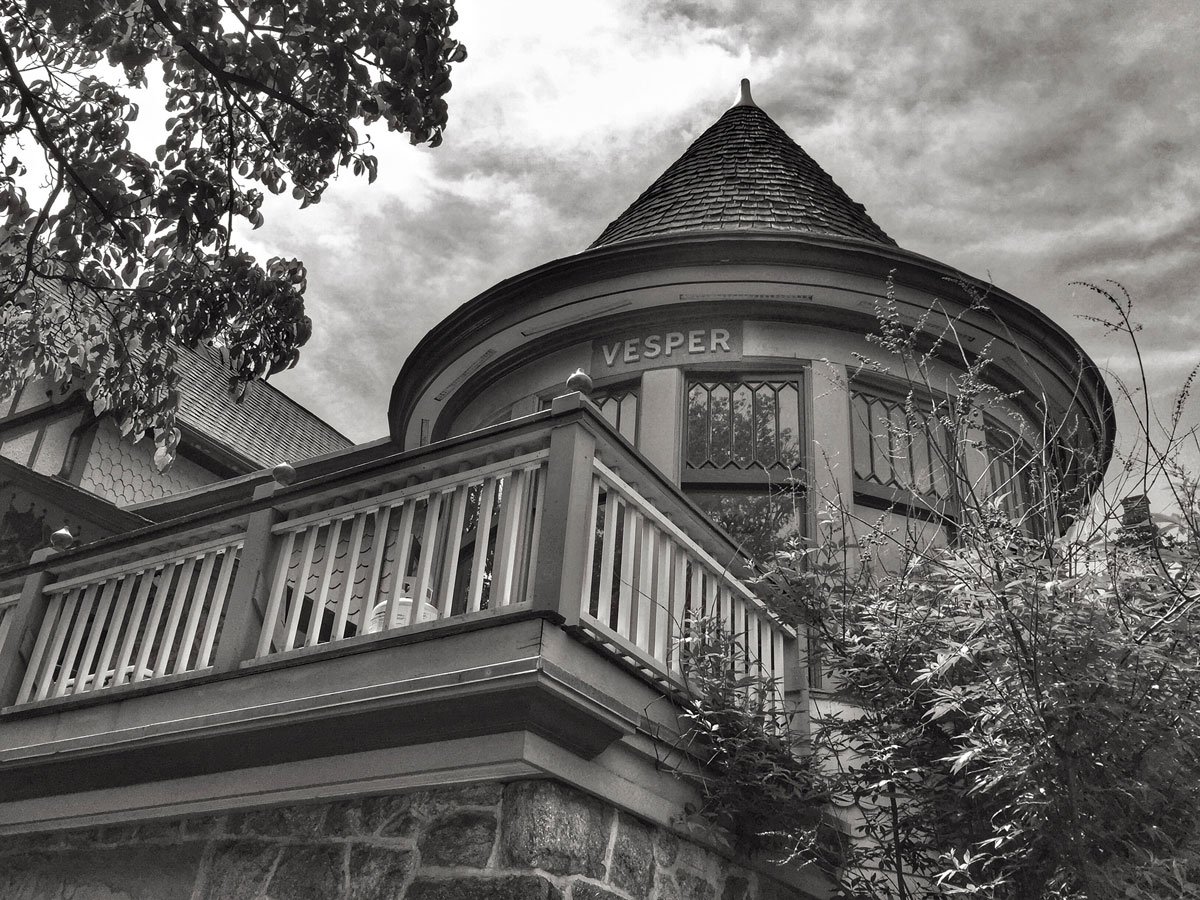Vesper Boat Club
Founded on February 22, 1865, as the Washington Barge Club, Vesper Boat Club took its current name in 1870 and quickly became one of the most celebrated rowing clubs in the U.S. and the world. It has always been central to the Philadelphia rowing story.
Vesper’s eight-oared shell took the gold medal in Paris in 1900 at the first Olympic rowing regatta. The Vesper eight repeated its victory at the 1904 games in St. Louis. And at the 1964 Tokyo Olympics, Vesper eight won again, making it the only rowing club in the United States to win the title three times.
Perhaps the best-known names associated with the Vesper Club are John B. Kelly Sr., an Irish brickworks owner who became influential in city politics, and his son, John B. Kelly Jr., a city councilman and brother to Princess Grace of Monaco.
Kelly Sr. won Olympic Gold in the single scull in 1920. He also won gold medals in the double scull in 1920 and in 1924, both times with his cousin Paul Costello. But, as a laborer, Kelly was barred from entering the Diamond Sculls at the Royal Henley Regatta. It was two decades later, that John B. Kelly Jr. would win that event, in 1947 and 1949. Kelly Jr. won the national singles championship eight times. At the time of his death in 1985, he. was president of the United States Olympic Committee.
Under the coaching of such greats as Jim Manning, Dr. Charles W. Riggall, Allan Rosenberg and Dietrich Rose, many other Vesper members have gone on to cumulatively win more national and international races than any club in the United States.
Vesper's Clubhouse
The present Vesper Boat Club boathouse was built alongside neighboring Malta Boat Club, with Vesper’s cornerstone proudly dated 1865. The original structure was completed that same year, followed by a second boat bay added in 1898. In 1964, the John B. Kelly Addition was constructed to support the club’s growing needs. This section was later replaced during a major renovation in the late 1990s, culminating in the updated clubhouse completed in 1998.
The boathouse was designed by renowned Philadelphia architect G. H. Hewitt in the ornamental Victorian Gothic style characteristic of the era. True to the club’s roots, the original structure was built by member tradesmen using locally sourced materials—an enduring symbol of the club’s craftsmanship, pride, and community spirit.
Vesper & Women's Rowing
After a century of success in men's rowing, Vesper made history again in 1970 by becoming the first men’s club to establish a women’s rowing team. While the Philadelphia Girls Rowing Club had pioneered women’s rowing in the United States in 1938, Vesper’s move marked a turning point in competitive women’s rowing at a traditionally male institution.
Since then, Vesper women have become a powerhouse, consistently winning national titles and representing the United States on the international stage. At the 1976 Montreal Olympics—the first Games to include women’s rowing—six Vesper athletes were named to the U.S. Olympic team, including Anita DeFrantz, who became the first African American woman to row for the United States at the Olympics and win a medal.
A Long History of Excellence
1978 Lightweight National Team
John DuGene and William Nelson rowed for Vesper on the 1978 U.S. Men’s Lightweight Team that competed at the FISA Lightweight Championships in Copenhagen. They served as team alternates—the “spare pair”—supporting the lightweight four (Gribbin, Bater, Bohlin, and Lewis), who also came from Vesper. In total, six of the nine athletes on the team were Vesper members. The single sculler (1x) was Bill Beldon, and the double scull (2x) featured Stan Depman and Fred Duling, who were not from Vesper. The team’s coach, John Bannan, was also from Vesper.
Olympians and Champions
Paul Costello won Olympic gold in the double sculls in 1920, 1924, and 1928, and claimed numerous national and Canadian championships. (He also rowed for Penn AC.)
Joe Toland, Vince Deeney, and coxswain Joe MacIntyre represented the U.S. in the coxed pair at the 1948 Olympics. Toland later coached at St. Joseph’s and was part of the gold medal eight at the Pan American Games in Mexico City, rowing behind Bill Knecht.
Bill Knecht had a storied career in both sculling and sweep rowing. He rowed in the gold medal-winning eight at the 1964 Tokyo Olympics (seat 7), sculled with Jack Kelly Jr. in the double at the 1960 Rome Olympics, and earned many national and international victories.
Coaches of Note
Jim Manning coached at Vesper from 1953 to 1961. He also coached the Navy plebes, who went on to win 52 consecutive races and earned Olympic gold in 1952. Manning began coaching Jack Kelly Jr. in the single in 1952 and later led the Brown and Nichols schoolboy eight to a historic victory at Henley, becoming the first American school crew to win the Ladies’ Plate.
Frank Muller coached Vesper’s gold medal eight at the 1900 Paris Olympics and later coached at Yale. He famously coached from a single, riding off the bow.
Harry Parker, a Pan American and Olympic sculler (bronze, 1960), later became the legendary head coach at Harvard.
Historic Vesper Crews
The Vesper eight of 1958 won the Canadian Henley in record time and placed second at the European Championships in Poland. Crew members included Kelly, Knecht, Hermann, Coleman, Ignas, Heffernan, Halloran, Wilmerding, and coxswain Allan Rosenberg.
The original 1900 Paris Olympic eight featured some of Philadelphia’s finest scullers, including Harry De Baecke, Jim Juvenal, and Lockwood.
Other Notable Members
Bob Zimonyi was coxswain of the gold medal-winning eight in Tokyo (1964) and also won bronze in the coxed pair at the 1948 London Olympics.
Dickie Mahan, a standout lightweight sculler from Philadelphia’s East Falls neighborhood, was among the nation’s best for many years, winning numerous races in doubles and quads.




